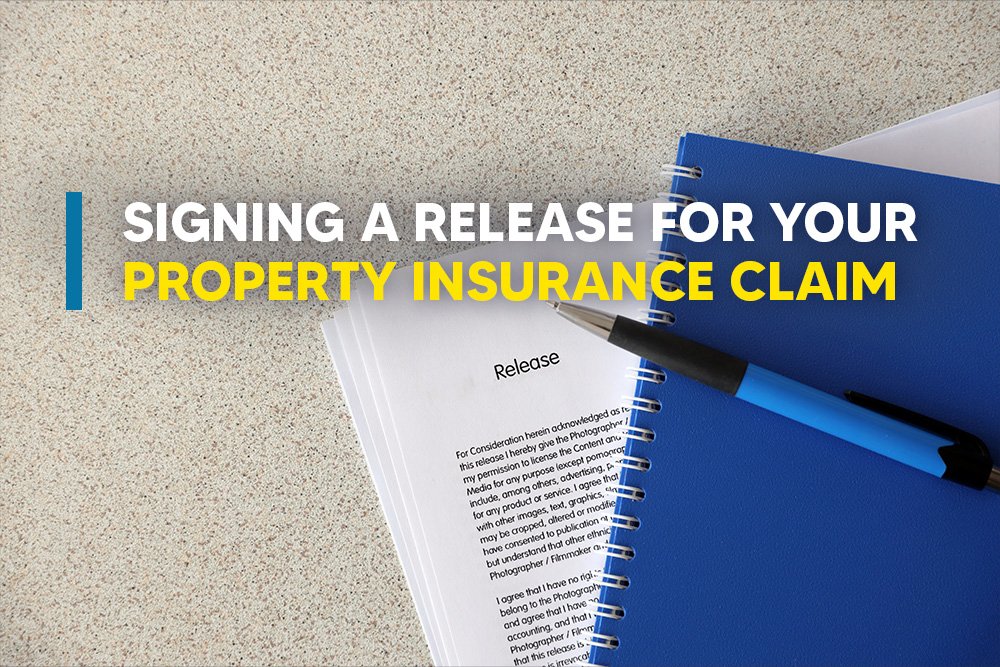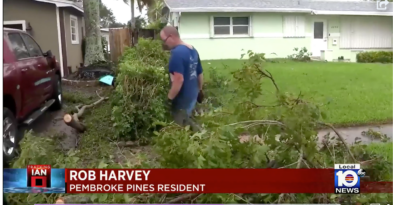Signing a Release for Your Property Insurance Claim
How to Finalize Insurance Claim?
In order for an insurance company to finalize your claim, you have to sign a property damage release form. Once that form is signed, you are agreeing that the insurance company does not owe you anything else. Because of this, it is important that you are cautious about signing that property release form. An attorney can even review your claim and the property damage release form for you before you sign.
Property Damage Release Forms
If your property is to become damaged, your insurance company will offer you money. You have the option of accepting the insurer’s settlement offer, or attempting to gain more compensation than offered. If you choose to accept the offer, the insurance company will have you sign a property damage release form.
Signing a property release form means that; you accept the insurance company’s stated settlement offer, you are not able to pursue additional compensation from the insurance company, and your property claim is final.
These release forms are legally binding documents, hence why signing one is a significant decision, no matter what amount of property damage has occurred. If you think you understand the details of property damage release form, you may still want to consider having an attorney review the document for you.
Property Damage Claims
Damage release forms are standard in any property claim. The insurance company is absolved of any further responsibility once you sign a release form. This is why the forms are necessary whenever a policyholder filed a property claim. These property claims can include those for:
· Wind damage
· Water damage
· Fire damage
· Smoke damage
· Flood damage
· Toxic and non-toxic mold damage
· Vandalism
· Termite and other pest-related damage
· Sewage backup
· Sinkhole damage
· Theft
· Motor vehicle damage
· Damage caused by falling objects
· Any other instance resulting in property damage
If you endure property damage and file an insurance claim, you will eventually face a property damage release form.
What Not to Do
It is extremely important to avoid potentially costly mistakes when it comes to property damage releases.
Here are some things you should not do as a claimant:
· Treat the property release form as routine.
A representative from the insurance company is likely to make the property damage release form sound very casual. They might even ask you to sign the form in routine manner, as if signing it something that every claimant does. This is typically because they do not want you to dispute the settlement. Even if the insurance company suggests that you should just sign the release, it is not a throwaway detail of your claim and it is important to consider all of your options.
· Be intimidated by insurance representatives.
Insurance companies know what they are doing when it comes to insurance, as they handle property damage claims every day. However, do not let them intimidate you, as this is a tactic they will use. The insurers financial incentive may go against yours, which is why you need to consider your own interests before signing any release form.
· Feel that you must handle your claim alone.
The entire process surrounding property damage claims is foreign to most people and can be extremely confusing and overwhelming. If you feel that you may need help with any aspect of your claim, do not hesitate to hire a lawyer.
The average person is accustomed to signing forms for even the smallest of transactions. A property damage release form is not one of those small transactions. Once you sign that form, you lose your right to seek any further compensation from the insurance company. If you find out later on that your losses cost more than you originally thought, and you have already signed that form, the rest will likely have to come out of your pocket.
When You Should Sign the Form
Typically, when you are filing a claim, you are looking to receive total and fair compensation for your covered losses. This is why it is important to not sign the form until you are completely certain that you are getting a fair settlement.
You along with any attorney you may hire can ensure that the insurance company’s settlement offer is fair by:
· Completing a thorough assessment of your losses- You will not be able to get an accurate calculation without looking at every single instance of property damage. Whether you do it on your own or with professionals, be certain that the investigation was thorough.
· Totaling your existing expenses- If you have already paid to replace or repair any damage that had occurred, calculate the costs of your existing expenses. In this calculation, you can include any cleanup, relocation, and property damage-related costs.
· Projecting the cost of future expenses- If you haven’t completed any repairs yet, you will want to project the future cost of your losses.
· Hiring experts- An expert can double-check your calculations to ensure everything is correct. You do not want to end up signing a release form and later realize that you calculated improperly and lost out on money.
How a Lawyer Can Help
A lawyer is very beneficial in filing your property damage claim. If you have ever dealt with an insurance company before, you probably know how difficult and stressful it can be. A lawyer will help to take that stress off of you while also ensuring that you receive just compensation. They will also be able to accurately investigate your property damage and the right amount of compensation you should be receiving based to the extent of the damages. After investigating, you need to calculate the cost of those property losses. Again, this is another stressful and time-consuming task for a policyholder that a lawyer will be more well-versed in. And, if a negotiation is needed, your lawyer is more likely to reach a higher number than you are on your own.
So give us a call at 833-MIKE-247, Let property damage attorney Michael Fischetti, Esq. Assist you.












